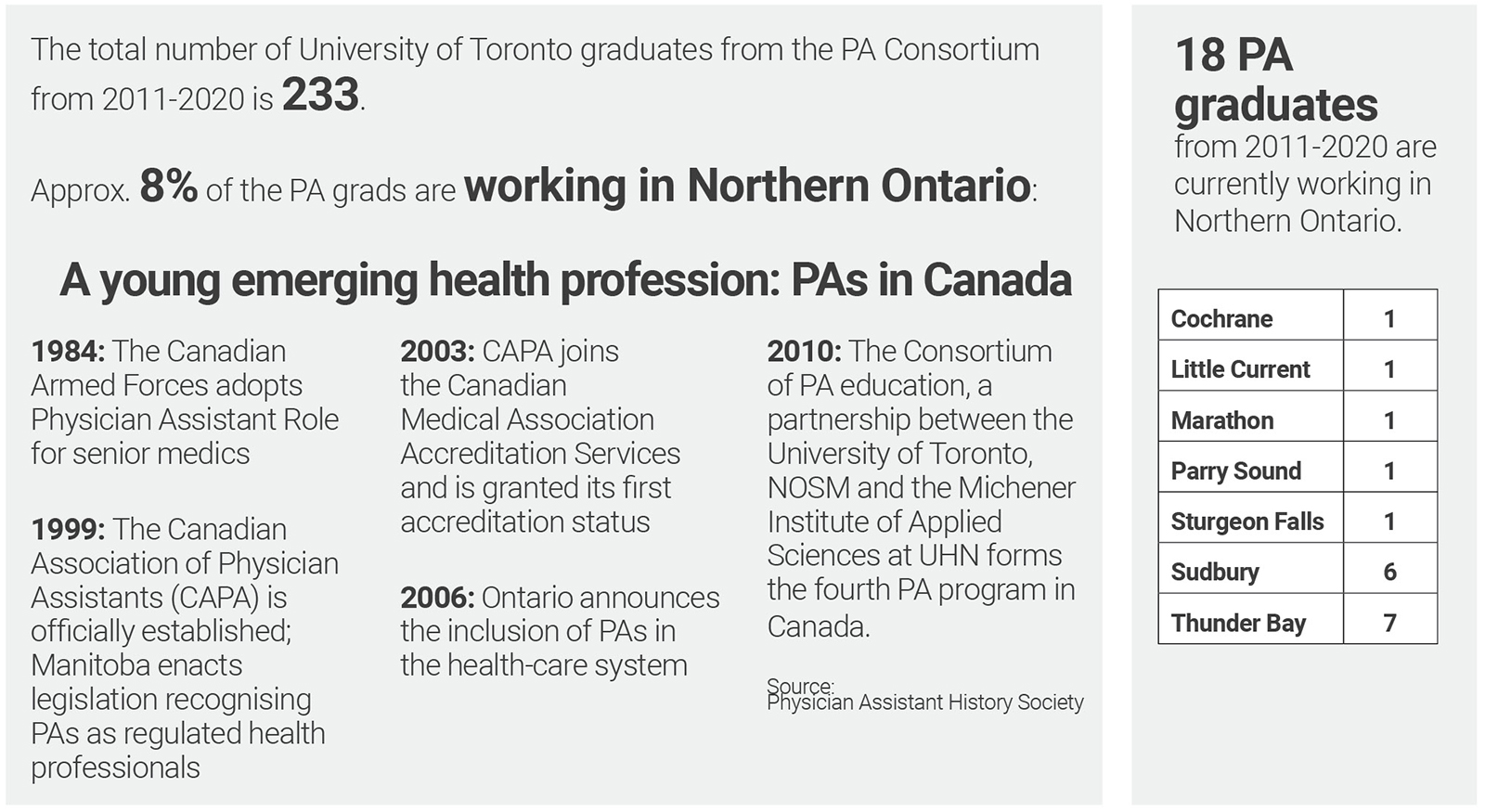A breakthrough year for Physician Assistants in Northern Ontario

Currently across Northern Ontario there is a shortage of 313 full-time equivalent physicians. Of this group it is estimated that 126 family physicians are needed, and of that number 86 are needed in rural communities. NOSM programs supporting health professions are helping bridge the gap and sustain care.
In April 2021, the Ontario Minister of Health, Christine Elliott introduced legislation proposing the regulation of Ontario Physician Assistants (PAs) under the College of Physicians and Surgeons of Ontario (CPSO). The Minister highlighted that the “regulation of PAs in Ontario is an important step in health modernisation.”
“PAs will become a regulated health profession soon which will be a huge step towards better funding and access to care. NOSM is proud to be a partner in the delivery of the Physician Assistant program,” says Dr. Catherin Cervin, Vice Dean Academic at NOSM.
The Bachelor of Science Physician Assistant degree (BScPA) is based in the Department of Family and Community Medicine at the Temerty Faculty of Medicine at the University of Toronto. Having welcomed its first class in 2010, the PA program is delivered in collaboration with NOSM and The Michener Institute of Education at UHN. The three institutions have formed the Consortium of PA Education to collaborate in the development, administration and delivery of the University of Toronto degree.
The success of this program has resulted in graduates working in Cochrane, Little Current, Marathon, Parry Sound, Sturgeon Falls, Sudbury and Thunder Bay. During the pandemic, PAs played a critical role in areas of need across the North and throughout the province, highlighted by the Canadian Association of Physician Assistants (CAPA).
“We heard stories from PAs in Emergency Departments, working to develop redeployment and on-boarding procedures, in preparation for potential staffing shortages. We heard from PAs in Family Medicine, rapidly adapting to create a seamless pathway for their patients to access high-quality virtual care,” report Sahand Ensafi and Maitry Patel, both B.H.Sc, CCPAs, co-authors of The Physician Assistant Response to the COVID-19 Pandemic in Ontario published in the Journal of Canada’s Physician Assistants.
“We heard from PAs in long-term-care facilities working to create policies that would protect the most vulnerable individuals in our population. PAs in other specialties also shared their stories of redeployment, taking on additional responsibilities and stepping up to fill gaps in care during the pandemic.”
The regulation of Physician Assistants in the province “will help solidify the important role that PAs are playing in hospitals, emergency departments and in primary care settings… PAs will improve patient care, encourage more team-based care and allow PAs to work to their full scope of practice,” reports CAPA.

